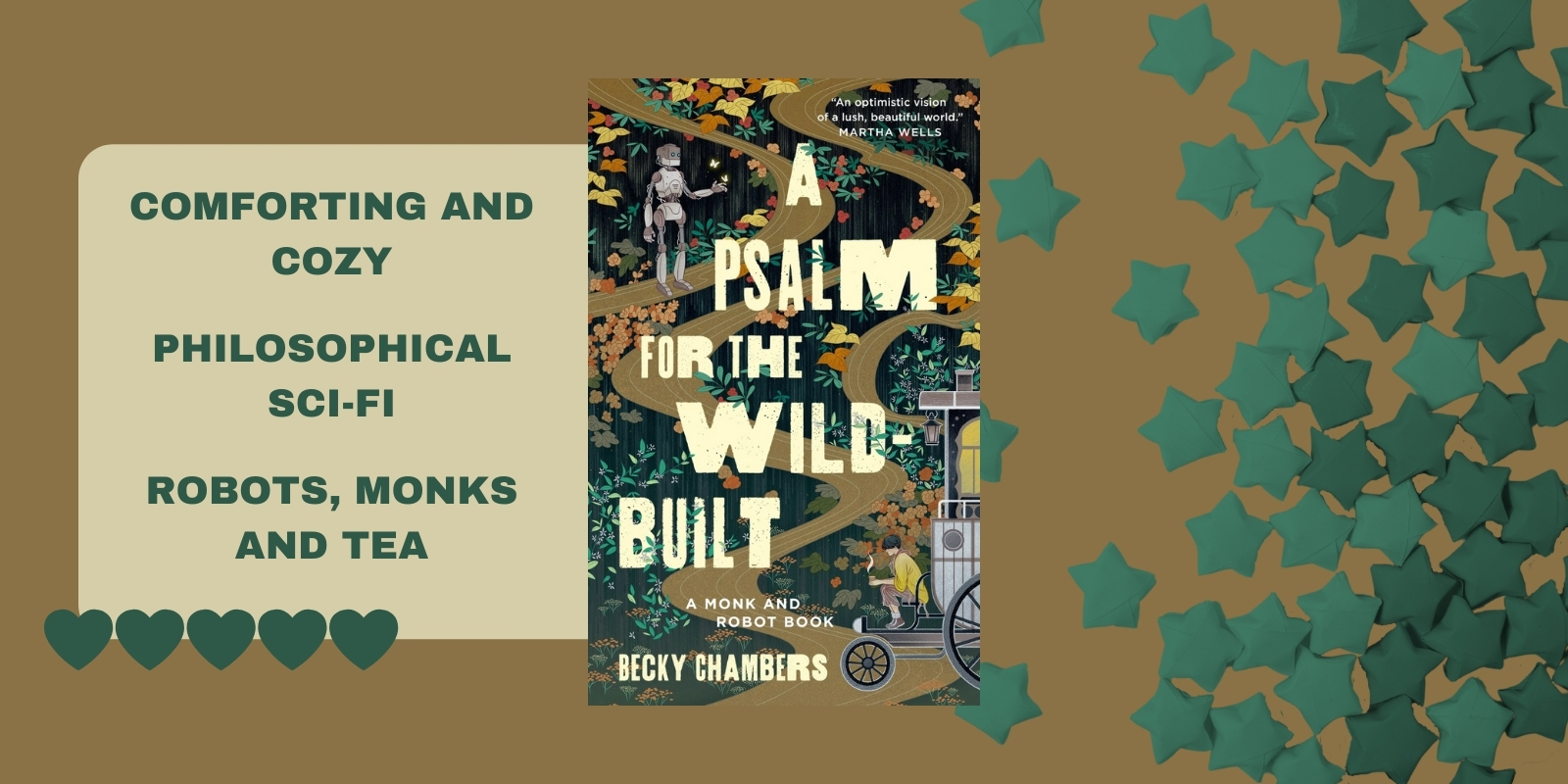Content notes for A Psalm for the Wild-Built by Becky Chambers: I’m really not sure there are any
- No notes, no spoilers
Representation: agender main character and a queernorm world
Do you know these books that just feel … wholesome? If you’ve read any of Becky Chambers previous novels, you know that they often feel like this. And with A Psalm for the Wild-Built this was especially true. It was a cosy, comfy read, perfect for a rainy afternoon and curling up with a cup of tea and a cuddly blanket.
‘I’d say you’re more than just an object,’ Dex said. The robot looked a touch offended. ‘I would never call you just an animal, Sibling Dex.’ It turned it’s gaze to the road, head held high. ‘We don’t have to fall into the same category to be of equal value.’
A Psalm for the Wild-Built by Becky Chambers
Ages ago, the humans of this fictional society brought their world (a moon called Panga) to the brink of ecological collapse and their robots to the edge of self-awareness. Then the robots actually revolted and … walked of. They went into the woods and the humans were left with empty factories. The world of Panga was restructured, half of its continent designated for human use – now developed into a highly sustainable and spiritual society – and half left to the wilderness and the robots. It’s been centuries since any human has laid eyes on a robot.
In the centre of the story are the monk Sibling Dex and the robot Mosscap. Dex is tired of their life at the monastery and restless, without fully knowing why. So they decide to take up the duties of a tea monk, traveling through the little villages in the wilderness and offering anyone who needs it a cup of tea and someone to talk to. They start out as an anxious and unsure mess and slowly become a respected tea monk, well known and loved within the communities they travel. But something is still off.
And so Dex enters the wilderness and meets Mosscap – a robot. Just like Dex, Mosscap is looking for something to slake its restlessness and wanderlust – and intense curiosity. And what better way to do that than to volunteer to find out about more about the state of those weird organic beings its ancestors left behind ages ago?
What follows is a philosophical discussion of restlessness, wanderlust and the drive to find new things, to find a purpose in life. Yes, it’s basically about ‚first world problems‘ – Dex and Mosscap each live in a society that seems to function flawlessly and in harmony with its surroundings, it’s an ecological, spiritual utopia. But they are both still yearning for more and the novel explores this fundamentally human restlessness, this need for something more even in the face of quasi-perfection.
Unlike Becky Chamber’s other novels and novellas, there’s no conflict here, no fight for survival – that has all already happened for the human and robot societies. What’s left is a debate about what happens once the basic needs for survival are fulfilled and you are safe and have no need to worry about how you are going to fend of hunger, thirst or the elements. Yes, it is very much a discussion about ‚first world problems‘ but it’s also integrally human.
With A Psalm for the Wild-Built Becky Chambers once more proves that she can write wonderful cozy scifi stories. The first Monk & Robot novella is not nearly as intense as, for example, The Long Way to a Small, Angry Planet but it is a wonderful, restful read and the dedication perfectly captures what it felt like to me: „For anybody who could use a break.“
Was andere Blogger sagen:
Habt ihr das Buch gelesen und rezensiert? Dann lasst mir doch einen Kommentar da und ich verlinke eure Rezension hier ?






1 Kommentar
Kommentieren[…] Becky Chambers Novelle „A Psalm for the Wild-Built“ treffen ein Mönch und ein Roboter aufeinander und spüren gemeinsam der Frage nach, was Menschen […]